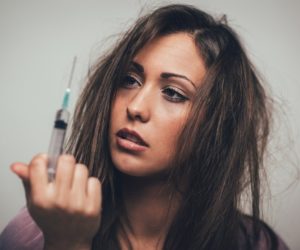What are the Different Types of Drugs that are Addictive?

Understanding the Different Types of Drugs
Different types of drugs can affect people in different ways. For the most part, drug use alters one’s thinking and judgment and may lead to addiction. There are so many types of illegal drugs that it may seem hard to keep track of them all. If you suspect someone you love of abusing drugs, try to intervene for you may say their life. For more information on different types of drugs, or how to talk to a loved one about seeking help, contact White Sands Treatment today at (877) 855-3470.
Categories of Drugs
The different types of drugs can be organized into categories. Some categories of drugs are as follows.
Stimulants
These drugs speed up the body’s system and create a powerful feeling of energy. Stimulants, or uppers, have the ability to make people feel awake and alert. These drugs increase blood pressure and heart rate.
- Cocaine: This drug is commonly snorted. Long-term use can lead to olfactory issues, nasal damage, nosebleeds, and infection of bowel tissue from decreased blood flow.
- Ritalin: When misused in the long-term, Ritalin carries a risk of paranoia, heart problems, and psychosis.
- Methamphetamines: Meth is highly addictive. If a pregnant woman is using whilst pregnant, it could result in low birth weight, premature delivery, and separation of the placenta from the uterus.
Morphine Derivatives and Opioids
If you watch the news, you have heard about the “opioid epidemic.” These drugs may cause feelings of euphoria and help relieve pain.
- Fentanyl: This drug is similar to morphine – except that it is up to one hundred times more potent.
- Codeine: This opioid works as a cough suppressant. Consumed in large amounts, codeine can cause euphoria.
- Heroin: Known as China White on the street, this drug produces a rush of euphoria and heavy feelings in the hands and feet.
- Morphine: A natural substance, morphine is taken from the seed of the opium plant.
More than thirty-three thousand people died in 2015 from the opioid epidemic. Of all the types of illegal drugs, opioids are among those that may be treated with medications, in this instance, methadone.
Inhalants
When people use inhalants, the body is deprived of oxygen. Sudden deprivation of oxygen causes rapid heartbeat and can lead to sudden mental damage. Inhalants include:
- Laughing gas: People fill balloons with nitrous oxide and inhale it to produce immediate effects.
- Glue: People get high by sniffing the fumes from glue bottles.
- Aerosol spray: Individuals spray these bottles directly into their mouths (or noses).
Hallucinogens
One side effect of hallucinogens that stands out is heart failure. These substances may be found in a naturally occurring way, such as mushrooms or other plants, or can be made by humans.
- LSD: LSD, a mood-changing chemical, is incredibly powerful.
- Ayahuasca: This is a tea made by combining several types of plants from the amazon, including DMT. This tea is mind-altering.
Hallucinogens are so powerful that in the long-term, may produce persistent psychosis. This is a mental issue that may cause paranoia, and mood changes. Most notably, hallucinogens may cause flashbacks where you have recurrences of drug experiences.
Depressants
Depressants or, downers, slow down the central nervous system of the body. These drugs help people feel relaxed. People become addicted to this “relaxed” state. Sometimes, physicians prescribe these drugs to patients who suffer from anxiety. Depressants include:
- Alcohol: Although alcohol is legal in the Unites States, it is still an addictive substance that can ruin and/or end lives.
- Benzodiazepines: Familiar names for benzos include alprazolam (Xanax), diazepam, triazolam, lorazepam.
- Gamma-hydroxybutyrate is commonly used as a date rape drug. It does come in a colorless liquid form thus making it easy to mix in with alcohol undetected.
There are many different types of drugs out there. Whether they are illegal substances or not – or whether they are prescribed by a doctor or not, these drugs can be addictive and cause irreversible harm. Do not suffer if silence any longer, ask for the help you need to get started on the road to recovery.
If you or a loved one needs help with abuse and/or treatment, please call the WhiteSands Treatment at (877) 855-3470. Our addiction specialists can assess your recovery needs and help you get the addiction treatment that provides the best chance for your long-term recovery.
